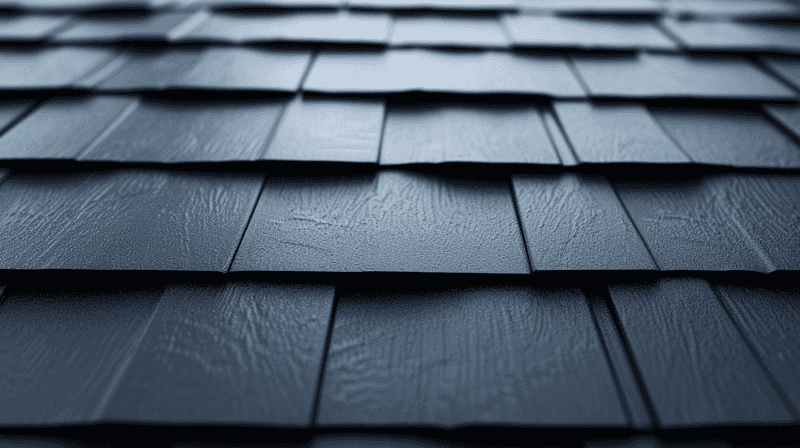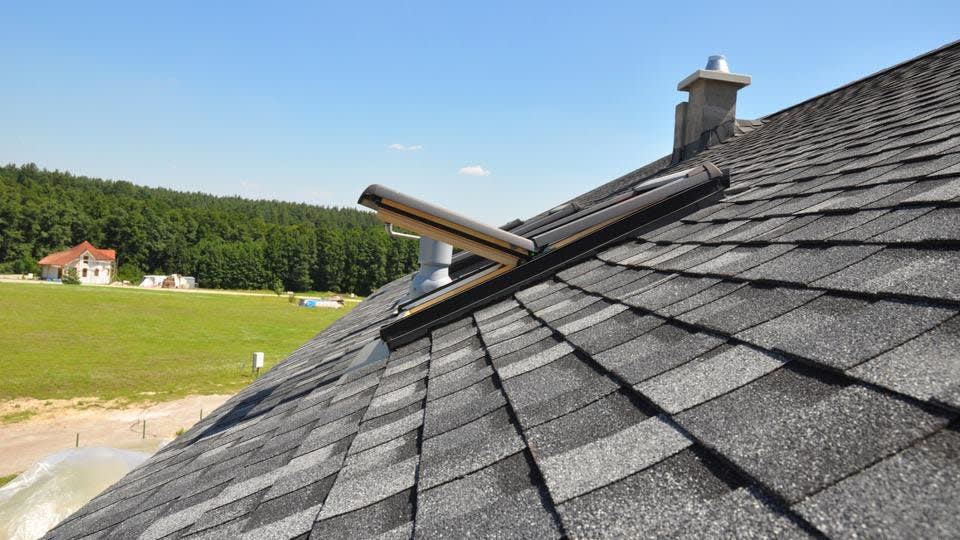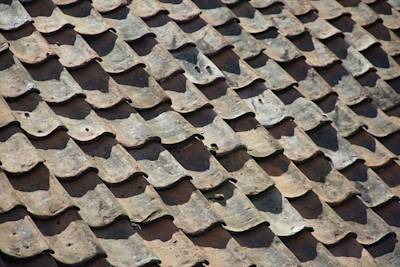When it comes to selecting a roof for your home or commercial building, it's crucial to understand the types of roofing materials available, their lifespan, aesthetics, and cost. Each roofing material comes with its unique set of characteristics and is suitable for various architectural styles and climates. In this blog post, we will discuss various popular roofing materials used in both residential and commercial properties.
Understanding Different Roofing Materials
Your choice of roofing materials will determine the longevity of your roof, its resistance to elements, and overall house aesthetic. From traditional options like asphalt shingles to modern alternatives like metal roofs, the variety can be overwhelming. However, having a basic understanding of these materials can help you choose what best suits your needs.
Asphalt Shingles
Favored by many homeowners due to their affordability and easy installation, asphalt shingles are the most common type of roofing material. They are made of either organic paper fiber mat or fiberglass, saturated with asphalt, and then coated with mineral granules to make them weather resistant. These materials provide a good level of protection and come in a variety of colors.
Metal Roofs
Metal roofs, composed mainly of aluminum, steel, or copper, are renowned for their durability and longevity. With proper maintenance, a metal roof can last up to 50 years or more. They are also highly resistant to fire and extreme weather conditions, making them a desirable option for most climates.
Wooden Shingles and Shakes
Wood shingles and shakes offer a natural and timeless appeal. They are usually made of cedar, redwood, or pine and are especially suitable for homes in the countryside. Wood roofing materials are durable and can last up to 30 years with proper maintenance.
Slate Tiles
For individuals who prioritize longevity and aesthetics, slate tiles can be an impressive option. These natural stone materials are fire-resistant and extremely durable, lasting up to 100 years or more. As a premium roofing material, slate tiles come with a higher price tag in comparison to other options.
Plastic Polymer
These materials imitate either wood shakes or slate tiles and can last for about 50 years. Plastic polymer roofing, made from high-quality plastic, offers robust resistance to weathering and discoloration, making them ideal for long-term use.
Factors to Consider When Choosing Roofing Materials
When selecting roofing materials, several factors come into play, and considering them will guide you towards making an informed decision.
- Climate: The climate in your region might determine the kind of roofing material you choose. Certain materials fare better in particular weather conditions.
- Lifespan: Consider the lifespan of the roofing material. Options like asphalt shingles have a shorter lifespan compared to metal or slate roofs.
- Cost: Your budget also plays a crucial role in the choice of roofing material. While some options are cost-effective, others can be quite expensive.
- Aesthetic: The aesthetic appeal of the roofing material is another significant factor. The roof contributes notably to the overall appearance of a building, so consider the visual effect of your chosen material.
Seek Professional Guidance
While having a grasp of various roofing materials can help you make an informed decision, involving a roofing expert is still vital. A professional roofer will assess your needs, climate, and budget, and recommend the best roofing materials for your residential or commercial building. Remember, the right roof matters not just for the safety of the inhabitants but also for energy efficiency and resale value.
Conclusion
Choosing the right roofing material is an investment in the long-term durability and aesthetic appeal of your home or commercial building. Understanding these materials, coupled with professional guidance, helps ensure your roof stands the test of time.
Frequently Asked Questions about Roofing Materials
What are the different types of roofing materials available on the market?
There's a plethora of roofing materials available on the market. They range from traditional materials like asphalt shingles and metal roofing to more innovative options such as solar tiles and green roofs. Each roofing material has its unique properties and characteristics that make it suitable for specific climatic conditions and architectural styles.
What's the longevity of various roofing materials?
The lifespan of roofing materials greatly varies. Asphalt shingles typically last about 20 to 25 years, wood shake roofs can last approx 30 years, tile and concrete roofs can stand up for 50 years and more, while metal roofs last between 50 to 75 years. It's important to note that the actual lifespan depends on factors like maintenance, local climate, and installation quality.
Which roofing materials are best for cold climates?
Some roofing materials perform exceptionally well in cold climates. Metal roofing and slate are popular choices as they effectively withstand heavy snowfall and ice dams. Asphalt shingles are also quite suitable due to their durability and affordable cost.
Which roofing materials are the most durable?
When it comes to durability, slate, metal, and tile roofs are often considered the most durable roofing materials. They're resistant to harsh weather conditions and can last for many decades with minimal maintenance.
Are there eco-friendly roofing materials?
Yes, there are several eco-friendly roofing materials available. Solar tiles, green roofs, and recycled shingles are all excellent choices. These materials either contribute to energy conservation or help reduce waste.
I have heard about rubber roofing materials. Can you tell me more about them?
Rubber roofing, also known as EPDM roofing, is a type of synthetic roofing material known for its durability and cost-effectiveness. It's lightweight, easy to install, and requires very little maintenance, making it a preferred choice for many homeowners.
Are some roofing materials more fire-resistant than others?
Yes, some roofing materials are classified according to their fire resistance. Class A roofing materials, like slate, tile, and certain types of metal roofs, are the most fireproof options. There are also treated wood shingles, and certain types of asphalt shingles that meet this standard.
How much do different roofing materials cost?
The cost of roofing materials varies widely depending on the type, style, and quality of the material, as well as the region where you live. However, generally, asphalt shingles are the least expensive, followed by metal roofing, wood shingles, and rubber roofing. Slate, tile, and copper roofing tend to be on the more expensive end.
What roofing materials require the least maintenance?
A key consideration in choosing roofing materials is maintenance. Metal roofs, concrete tiles, and slate roofs are among the materials which require the least maintenance. They can be cleaned periodically and checked for damages, but otherwise, do not require extensive upkeep.
Can all roofing materials be installed on any type of construction?
No, some roofing materials are not suitable for certain types of constructions or certain climates. For instance, tile and slate roofs are quite heavy, requiring the structure to be sturdy enough to support the weight. Also, some materials may not be effective in extreme climates. Therefore, it's important to consult with a professional to determine the right material for your specific situation.
Pros and Cons of Various Roofing Materials
Asphalt Shingles
Pros of Asphalt Shingles
- Cost-Efficiency: One of the biggest advantages of asphalt shingles is their affordability. They are one of the most cost-effective roofing materials on the market, making them a popular choice for homeowners on a budget.
- Versatility: Asphalt shingles come in a variety of colors and styles, meaning they can match just about any home's aesthetic. This versatility allows homeowners to customize their roofs to fit their unique tastes and preferences.
- Easy Installation: Compared to other roofing materials, asphalt shingles are relatively easy to install, reducing labor costs and installation time.
Cons of Asphalt Shingles
- Environmental Impact: Asphalt shingles are not the most eco-friendly roofing material. They are made from petroleum products, and their production and disposal contribute to greenhouse gas emissions.
- Shorter Lifespan: When compared to other roofing materials such as metal or slate, asphalt shingles tend to have a shorter lifespan, typically lasting between 15 to 20 years.
Metal Roofing
Pros of Metal Roofing
- Longevity: A significant advantage of metal roofing is its long lifespan. A well-maintained metal roof can last up to 50 to 70 years, more than double the lifespan of asphalt shingles.
- Energy Efficiency: Metal roofing is highly reflective, helping to reduce cooling costs by reflecting heat away from the house.
- Resilience: Metal roofs are resistant to fire, mildew, insects, and rot. They are also excellent at shedding snow and rain, reducing the risk of water damage or leaks.
Cons of Metal Roofing
- Cost: One major drawback of metal roofing is its high price point. While it is a long-term investment due to its durability and longevity, the initial cost could be restrictive for some homeowners.
- Noise: During heavy rain or hail, metal roofs can be considerably noisier than other types of roofing materials unless they are well-insulated.
Clay Tiles
Pros of Clay Tiles
- Durability: Clay tiles are extremely durable and can resist damage from heavy winds, fire, earthquakes, and even hail.
- Maintenance: They require minimal maintenance, and damaged tiles can be easily replaced without having to fix the entire roof.
- Energy Efficiency: Clay tiles provide excellent insulation, helping to keep homes cool in the summer and warm in the winter.
Cons of Clay Tiles
- Weight: Clay tiles are very heavy, requiring a strong and well-structured roof to support their weight. This often means additional construction costs to reinforce the roof.
- Cost: Similar to metal roofing, the initial investment for clay tiles is high. It can be offset by their durability and lifespan, but may still be prohibitive for some homeowners.
Summary
The diverse range of roofing materials available gives homeowners and builders a lot of options. Quality and durability are crucial aspects to consider when choosing roofing materials. The materials reflect the style and need of the house, and can range from traditional options like shingles and tiles, to more modern materials like metal and synthetic. These materials have their unique advantages and can cater to different aesthetic preferences, climates, and budgets.
When considering the environment, it's essential to choose eco-friendly roofing materials. Many manufacturers have taken strides to reduce the environmental impact of their products. Recycled shingles and cool roofs can effectively minimize heat absorption and improve energy efficiency. With the right choice of roofing materials, you not only ensure the longevity of your roof but also contribute to the health of the environment.
Roofing materials play a vital role in protecting the home from weather conditions. They can affect the overall expense of the house's maintenance and energy consumption. Therefore, it's imperative to choose the right one that serves your needs the best. With the vast amount of alternatives out there, homeowners can opt for the roofing material that best matches their home, their budget, and the climate they live in.
About Roach Home Improvement
Welcome to Roach Home Improvement! We're a family-owned and operated home improvement company located in Battle Creek, Michigan. Since we started, we've been committed to providing high-quality craftsmanship and top-notch customer service to our clients. We specialize in a wide range of home improvement services including roofing, bathroom remodels, kitchen remodels, and much more. With us, your home isn't just another job - instead, it's an opportunity to showcase our expertise and turn your dream home into reality.










